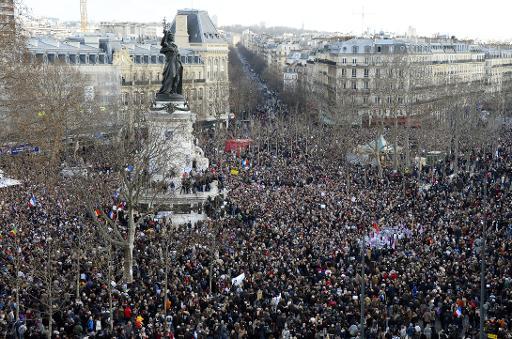IN THE MEDIA
Paris no excuse for revisiting 18C
January 21, 2015 | Sharyn Mittelman

SHARYN MITTELMAN
THE AUSTRALIAN – JANUARY 21, 2015
ON January 7 there was an attack on free speech in Paris by murderous terrorists inspired by a jihadist ideology, not French laws on hate speech.
Despite this truth, the attack on Charlie Hebdo and the horrific murders of 17 people have led some commentators in Australia to rehash the debate on section 18C of the Racial Discrimination Act, claiming we cannot say “Je suis Charlie” and support hate speech laws. But we can and we should.
In Paris, millions marched defending and celebrating freedom of speech, despite the fact that France has even tougher criminal and civil laws on hate speech than Australia. France has laws that criminalise speech that insults, defames or incites hatred, discrimination or violence on the basis of religion, race, ethnicity, nationality, disability, sex or sexual orientation, including under Articles 24, 32 and 33 of the Law on the Freedom of the Press of 29 July 1881. Moreover, the Gayssot Act sets a prison term and fine for the expression of ideas that challenge the existence of the crimes against humanity committed by Nazi Germany during World War II.
In addition, France’s penal code forbids private acts of defamation, insult and incitement of a person or group for belonging or not belonging, in fact or in fancy, to an ethnicity, a nation, a race, a religion, a sex, or a sexual orientation, or for having a handicap (articles R. 624-3, R. 624-4 and R. 625-7).
Despite all these laws, Charlie Hebdo was able to operate just fine. True, Charlie Hebdo was taken to court in 2006-07 for insulting a group of people because of their religion. However, the courts found in favour of Charlie Hebdo, on the grounds that the cartoons targeted only terrorists or fundamentalists and not the whole Muslim community. The verdict was widely seen as a win for free speech.
In Australia, section 18C of the Racial Discrimination Act makes it unlawful for a person to perform a public act that is reasonably likely, in all circumstances, “to offend, insult, humiliate or intimidate another person or a group of people” if the act is done because of the race, colour or national or ethnic origin of the other person or of some or all of the people in the group. But the law strikes the right balance between ensuring freedom of speech and making hate speech unlawful, due to the very important broad exemptions in section 18D for matters including a “genuine academic, artistic or scientific purpose or any other genuine purpose in the public interest”, in making or publishing “a fair and accurate report of any event or matter of public interest”; or “a matter of public interest if the comment is an expression of a genuine belief held by the person making the comment”.
Many of those who are in favour of repealing 18C have claimed that it stifles debate in Australia. Yet in the aftermath of the Sydney siege and the Paris shootings, one can see that Australia is having a thorough and vibrant debate about Islamist terrorism, and we have even seen cartoons from Charlie Hebdo, including, controversially, ones of the prophet Mohammed, published in the mainstream media with little if any protest, and certainly no legal barriers.
The claim made by some that a magazine like Charlie Hebdo would be legally barred from operating here does not appear to be true. Race Discrimination Commissioner Tim Soutphommasane has confirmed that many of the controversial cartoons published by Charlie Hebdo could be published here without breaching federal racial discrimination laws.
So what kind of debate do such proponents in Australia want to have if they wish to get rid of 18C? Are we looking to invite the crude racism that already flourishes on the internet into the mainstream media? And if we abolish 18C on purported freedom-of-speech grounds, what about the numerous other forms of prohibitions on free speech that include laws regarding defamation, consumer affairs, and laws against incitement to terrorism?
Freedom of expression is a human right but not an absolute legal right anywhere in the world, or according to international human rights law. While Article 19 of the International Covenant on Civil and Political Rights states that “Everyone shall have the right to freedom of expression”, it is limited by exceptions including Article 20 (2): “any advocacy of national, racial or religious hatred that constitutes incitement to discrimination, hostility or violence”.
Last year the Australian government proposed changes to section 18C that were widely criticised, because while they attempted to prohibit speech that would vilify and intimidate, the exemption proposed was so broad it would have enabled almost any pubic statement.
The government recognised that it needed to go back to the drawing board and decided to scrap the idea. That was the right decision and the time for rehashing the debate about the supposed right to be a bigot has passed.
Sharyn Mittelman is a senior policy analyst at the Australia/Israel & Jewish Affairs Council.
Tags: Australasia





